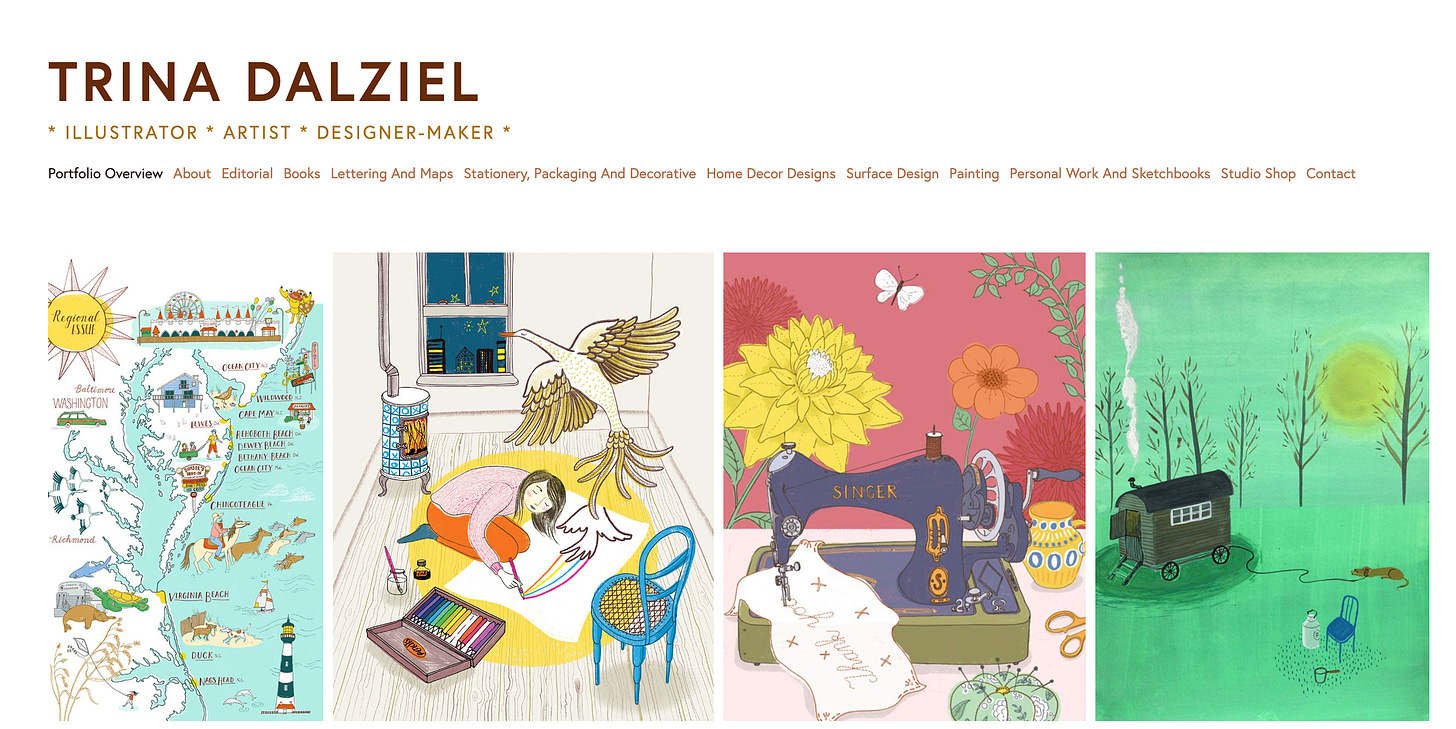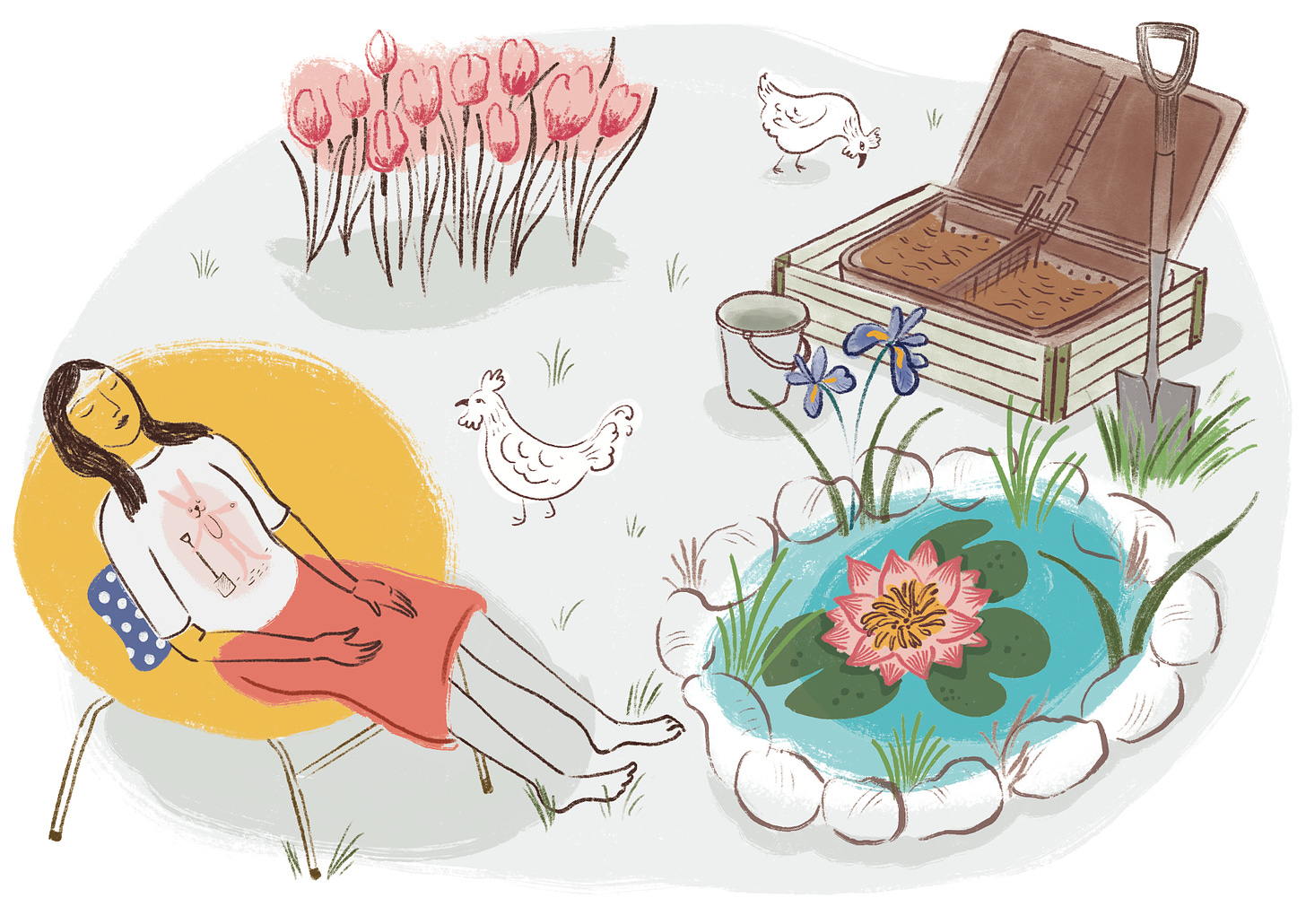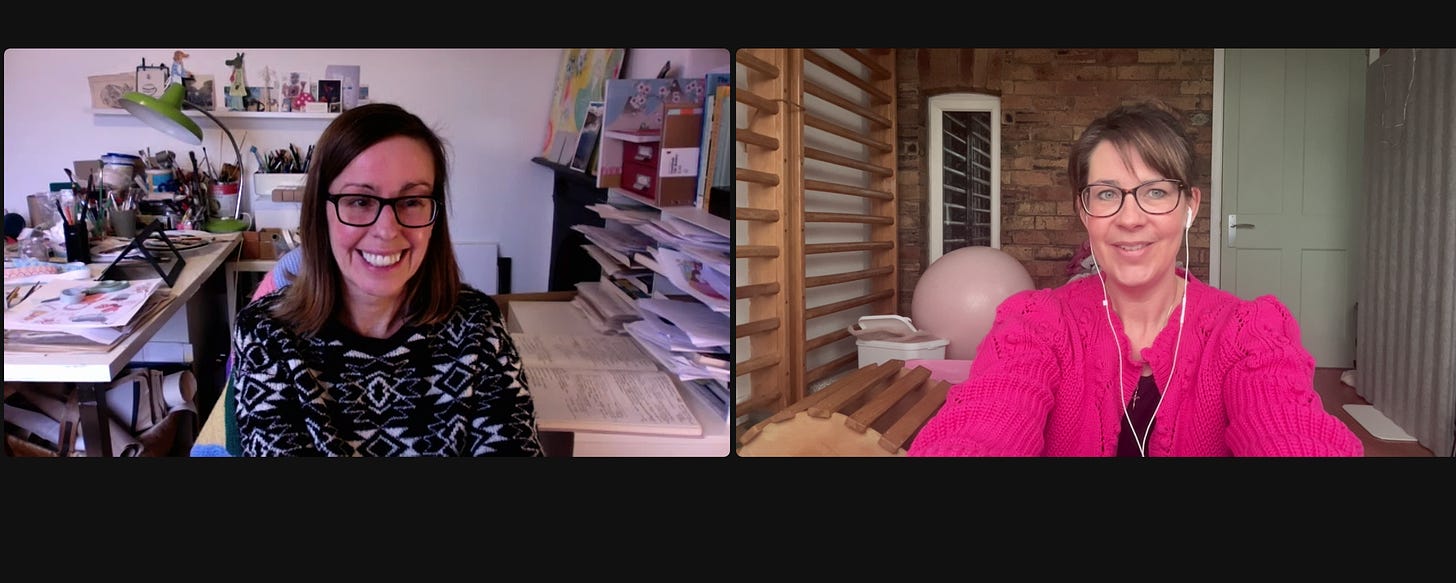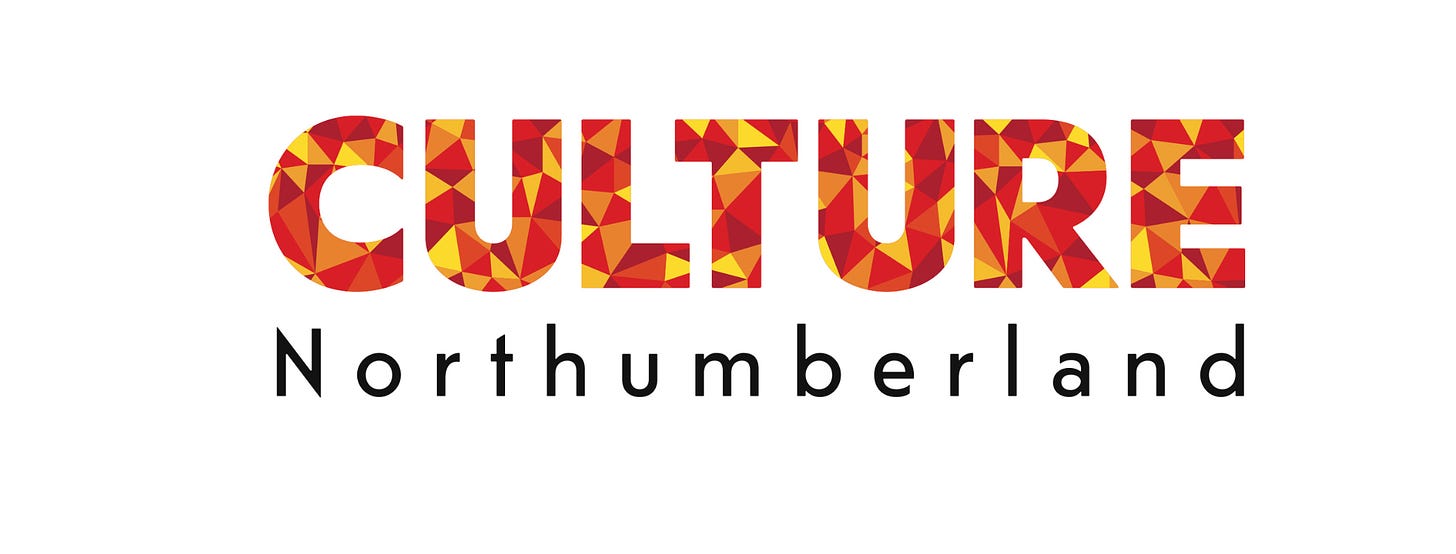Good afternoon all.
Claire here. I’m aiming to publish more of the behind the scenes of our current research into the possibilities for Culture Northumberland and the people the project supports. You can find our previous posts, videos and podcasts here.
This week, I met with Northumberland based artist Trina Dalziel.
Trina and I have known each other for a few years now. We have attended funding and training events together and I commissioned her to make beautiful infographics for one of my projects. We’ve shared process and practise and both been successful in applications to The Rural Design Innovation Challenge Fund and Creative UK’s challenge fund.
Trina has been putting energy into being experimental in her approach to diversifying work strands and I was looking forward to catching up with her about this.
About Trina
I’ve been an illustrator since the mid 1990s. Illustrating 80 plus books and 100s of magazines along with producing work for stationery, packaging, surface design and maps and lettering commissions.
I love the challenge of answering a brief and finding a clear, clever, visual solution whether it's for a complex idea or text or just to provide an appropriate beautiful image.
I've been a visiting tutor at many UK Art Colleges and specialise in Professional Practice.
Originally from the North of Scotland, where I grew up on a tomato farm, I lived in London for twenty five years and now live in rural Northumberland.
Trina and I talked about;
Success and what it feels and looks like in the arts and cultural industry mid career.
Making an arts career work in a cost of living crisis and reference to the global recession.
Artist skills and business development.
Working in different settings and associated training to do the work ie schools and youth settings.
Mentoring, coaching and teaching others.
Using and diversifying our skill sets and how that fits in our portfolio of work.
Innovative ways of organising ourselves and sharing skills
The frustration of the ‘middle man’ and geographical, financial, time and age related boundaries around professional development programmes.
Successful and unsuccessful funding bids
The pitch of ‘development programmes’ and where we invest our time.
Trina generously shared some of the brilliant ways she’s trialed new ways of working from hosting retreat days in her home, to organising artist networking events. She has taken part in Newcastle CCZ’s Commercialise without Compromise programme too.
One of the things that felt really interesting to hone in on was the notion of competition for funds in the arts sector. We discussed both the cost to applicant in time when applying for funding and also if entering exhibitions with a selection policy the monetary cost/risk. And the thought if also working in the commercial sector, as Trina is as an illustrator, whether investing time and energy into obtaining illustration commissions is not a smarter use of time than applying for arts funding and trying to exhibit artwork as an artist. Though ideally she’d like to pursue both avenues.
In the quest to diversify income, we talked about how it’s very difficult to use rural community centres as a small business in Northumberland and the breakdown of associated expenses for a half days work.
For Example;
Workshop event - 11-1pm
• hire fees (x3 hours delivery to include set up and take down) - £30
• materials for participants - x £15+
• refreshments - £10
= £55
• price per head - 6 x £25 = £150
Profit = £95. Approx hourly rate; £33
However if factoring in planning and prep at an additional 3 hours = £16.50 per hourly rate
It makes providing affordable art workshops complex. Although the work can feel rewarding to do, its very hard to make the numbers work.
Trina also shared that as part of her income portfolio she has work exhibited in The Biscuit Factory in Newcastle-upon-Tyne.
The Biscuit Factory is a contemporary gallery selling pieces from a wide array of incredible artists. More details here.It's a 50/50 split on income from sales. We discussed how it’s hard as an artist to make money selling work in venues like this especially when factoring in framing costs and to still keep prices consistent across all venues/ways of selling. Equally she is incredibly grateful for the opportunity to show her work in such a great venue and appreciates the need for this percentage to run such a venue recognising it’s a hard time for all!
We’d love to hear more from you about how the pandemic has encouraged you to diversify your income and your approach to work. Let us know what this post highlights for you in the comments?
Trina’s suggestion towards the end of our call was that it would be brilliant to try to fund and find more time to be together in a ‘Creative Playday’ environment. Watch this space and do let us know if you have thoughts around this concept.
Follow Trina online;
Website
Read more, see dates and pop along to join in;
🎙️
JOIN US FOR A LIVE PODCAST RECORDING
Continuing the conversation…
Leila D’aronville and I are recording a podcast episode on a topic with are both passionate about; Generosity.
And the best news you’re all invited!
More here and book your free spot. This is a total test of a new format for us and we’d be delighted if some of you want to join us live.
Our podcast will be an hour long and we’ll explore; Generosity, reciprocity and leadership in the arts and cultural sector. You’ll be welcome to ask questions in the chat live on zoom or leave them here in the comments? Join us Friday 16th Feb at 10am and help shape our conversation, provocations and next steps.
Thanks for reading. We’d love to here more from you in the comments or in reply to this email.
Claire
Claire Venus
Culture Northumberland











